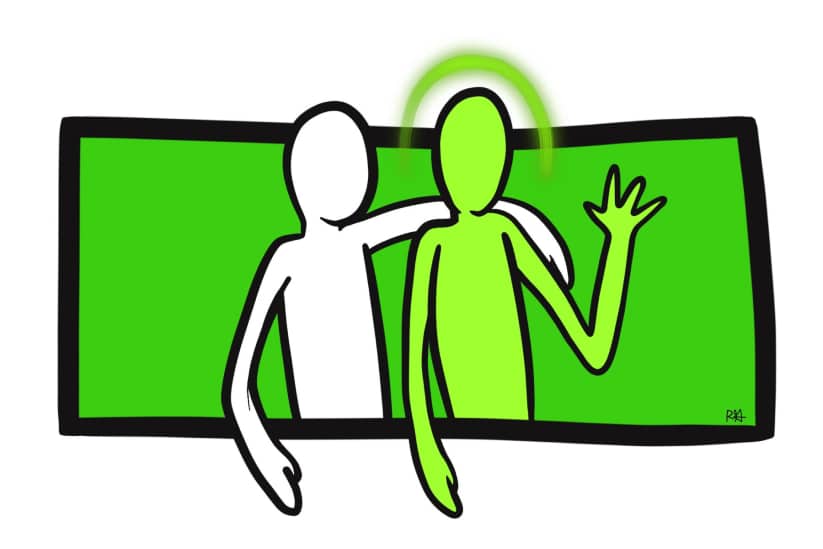
Immediately following the “visions of grandeur” phase, which helps founders overcome the inertia required to commit and proceed with the start-up adventure, the focus will usually shift from convincing themselves about the business viability to convincing others. We often refer to this period as the “Imaginary Friend” phase of a startup. This involves creating a vivid and impactful way to present and talk to others about the characteristics of a business idea, the market opportunity, and the potential for success is a skill that can be practiced. Presenting the business idea as if it were a well-defined imaginary friend can be a key step in advancing the creative process especially when the creation requires a shared vision with others.
At this stage, the audience typically involves influencing initial hires, business partners, and potential seed investors. While the founder’s family members and loved ones tend to be easily convinced and eagerly supportive of ideas, peers and initial hires can be more objective and harder to convince. Creating a passionate presentation of the business idea (the imaginary friend) can be a good alternative to defining a business and product that does not yet exist. The more detail that is provided the easier it is to convince colleagues, investors, and potential partners to join in on the journey. The goal here is to get others to understand the business to the point where they can effectively pitch the same vision –– something we refer to as “getting others to see the imaginary friend”. This step is a key to moving the business forward since this helps all involved to adopt and share the founder’s passion for the business. In best cases, this process can take on a life of its own and the business concept builds with each new established “friendship” while gaining common buy-in among the company’s initial team. This phase will likely be an ongoing initiative since re-affirming the vision for the product and the business is an everlasting job of a founder, at least until customer validation of the business is secured.
Emotions and excitement during the imaginary friend stage remain high for the business. The goal here is to generate as much passion and enthusiasm about the business with the early hires –– especially for those that are asked to make an immediate compensation trade-off for future equity. Once a founder can get buy-in at this level, enthusiasm for the business and its potential fuels the dedicated participation of the team. Until the first customers are engaged, there typically won’t be much to challenge the common start-up belief that “if we build it, they will come” and that product validation and success are just a few months away.
The skills honed while learning how to effectively introduce team members to the imaginary friend can also help tell the story to early-stage investors. Based on our experience as startup founders, as partners at Inspiration Ventures, we caution founders to not confuse the imaginary friend description with the value of actual customer feedback. Often the business vision will change once engaged with actual customers and there is a better understanding of what product(s) they are willing to buy. While founder passion can be captivating, most investors will also want to hear about customer and market validation for the business. With all of this in mind, the imaginary friend process plays an important role in the development of most businesses and can help a pre-product company convince investors to take a chance on backing the business.